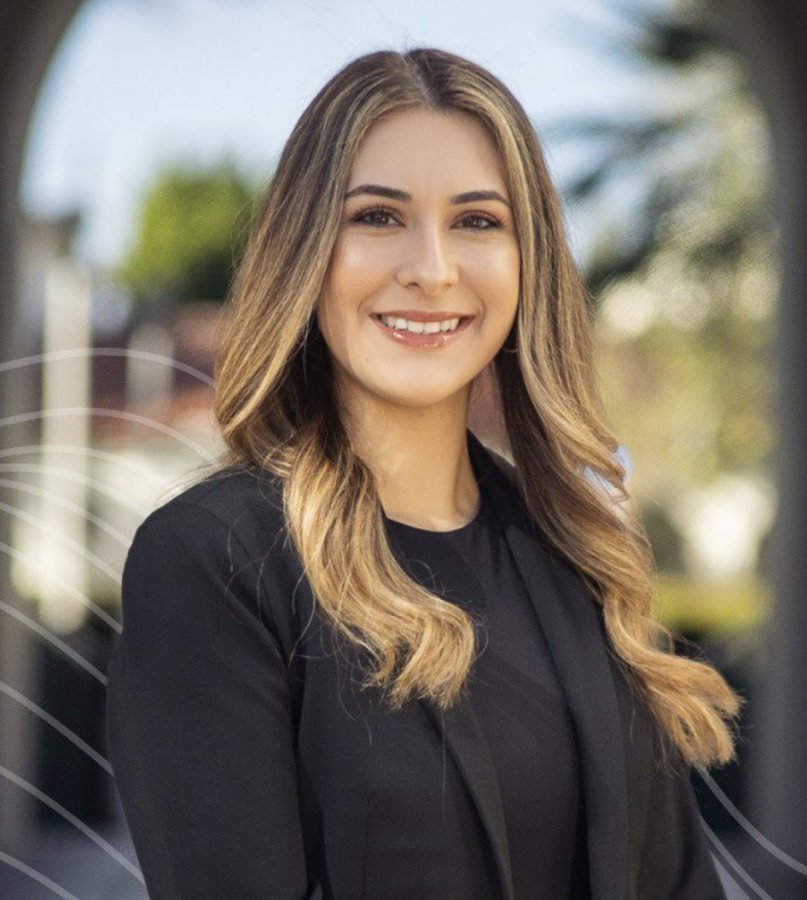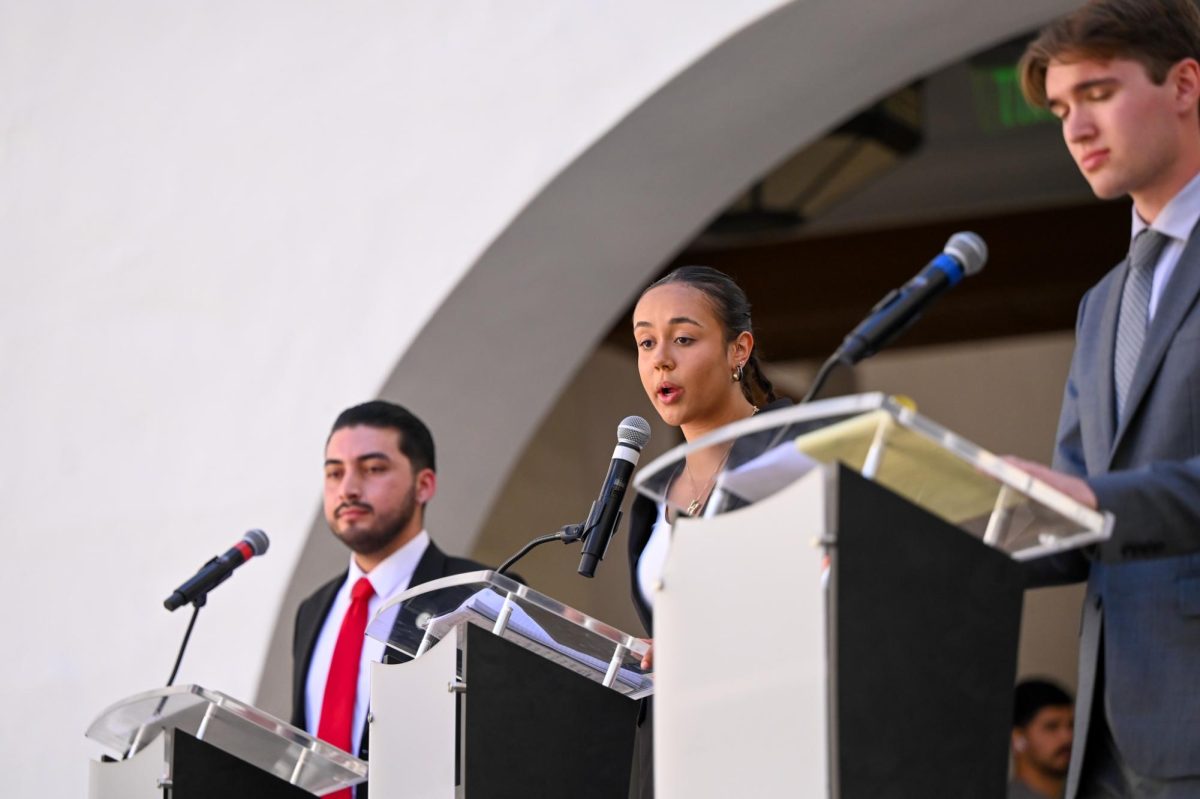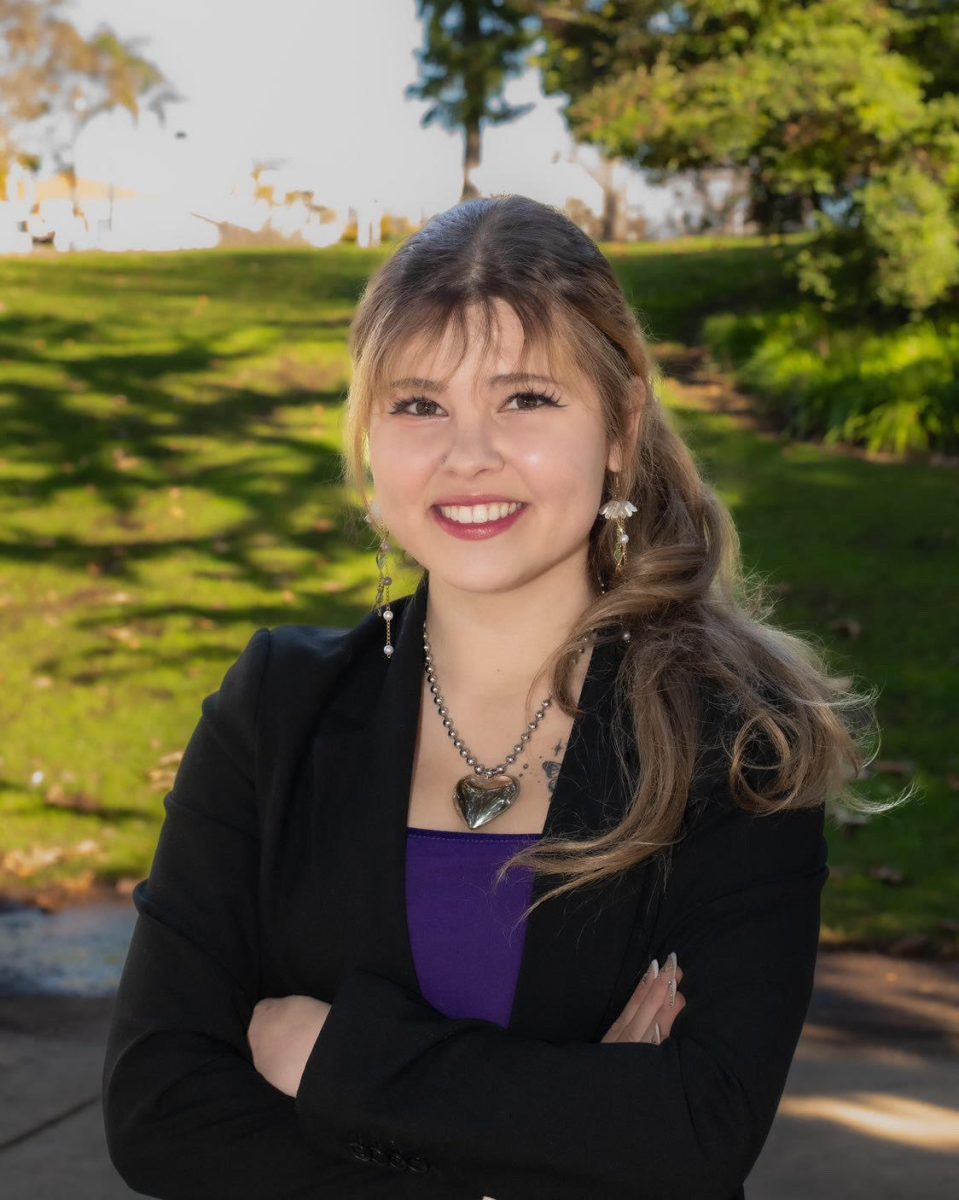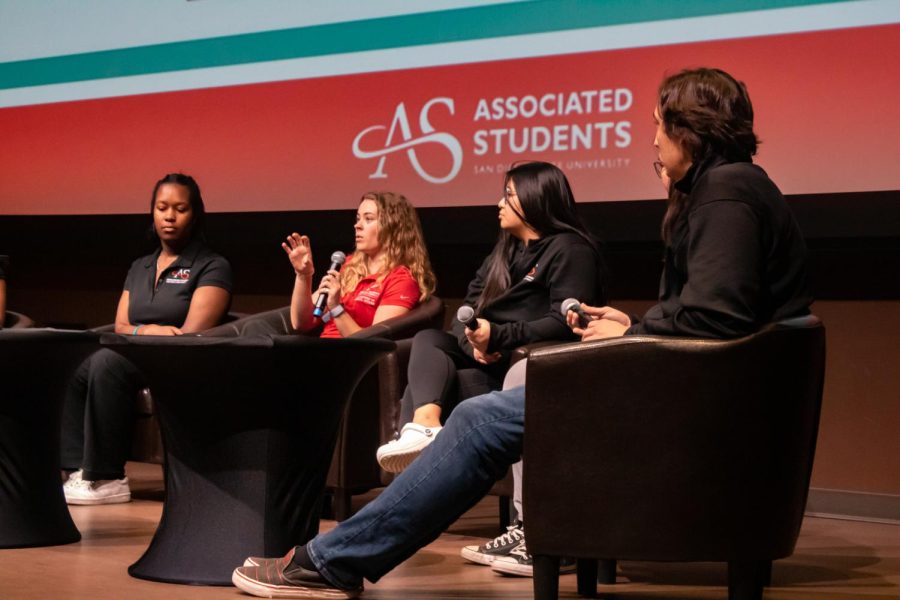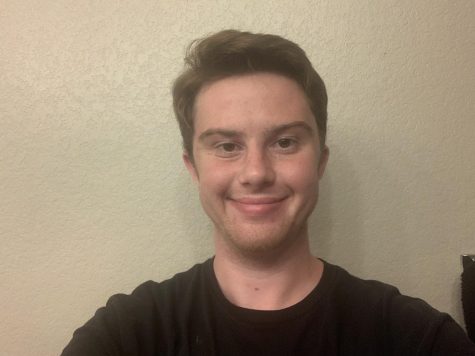Pronouns: She/Her
Slate: Our SDSU Students for Students
Year: Junior
Major: Political Science
Minor: Honors Interdisciplinary Studies & Sociology
Why did you decide to run for this position?
Over the past few years, I’ve gained multiple leadership positions at SDSU, and through these different positions, I felt the need for a change. I felt the need for experiencing the passions that I have for student advocacy are really what made me want to run in the first place, and just working in these different communities. I work as an academic success peer and a SWANA (Southwest Asian and North African) program assistant within the Center for Intercultural Relations. Working with these different communities at the C.I.R. really allowed me to see how many students on our campus feel neglected and how a lot of students don’t have a voice on campus. And for me, growing up as an Arab American woman, I really struggled with that. I see so many students on our campus that lack this feeling that they belong on campus. They lack this feeling that they are heard on campus. Having felt that growing up, being in a predominantly white community, feeling that same thing, I knew I could change that. Just having this position I feel would allow me to do that.
What makes you qualified for this position? What is your history with A.S.?
My history with Associated Students started out with the First Year Leadership Initiative. Basically, that was where I learned the full structure of A.S. From there, I decided to join multiple boards and committees. [Such as] the Student Diversity Commission, the Campus Community Commission, where I was secretary, and the University Affairs Board. That’s what got me started with A.S. As the years went by, I gained a lot of leadership positions, such as my positions in the Center for Intercultural Relations, serving as the Academics Chairwoman for Gamma Phi Beta, and as the Director of Internal Relations for the Tijuana Home Build. They’re all different experiences, and each one has allowed me to see how many issues we have on our campus that students feel like they don’t have help with. For example, my experience working in the C.I.R. allowed me to work with so many communities, especially the different cultural communities and centers. That specifically is where you see the lack of student voices being welcomed into many university decisions, which really pertains to the position I’m running for. In addition to that, serving as Academics Chairwoman for Gamma Phi Beta, I’m responsible for curating academic resources for our sisters in the sorority; ensuring they have everything they need to be successful, both inside and outside the classroom. Being the Director of Internal Relations for Tiawana Home Build really shows that so many students are living paycheck to paycheck and facing housing insecurities. Working along with our other communities in this effort has allowed us to raise so much money for our family in Tijuana, which we are actually building a home for tomorrow. Seeing these different issues on campus allowed me to connect with different resources – the Economic Crisis Response Team, the A.S. Food Pantry, SDSU Cares – all of these that I am now aware of and have experience with, which I can hopefully connect our inside and outside SDSU communities with.
What would you like to change at SDSU?
There’s a lot of things at SDSU I think could be changed. One of the biggest things I would say is the accessibility and visibility of resources. We do have a lot of resources at SDSU, but the problem is so many students don’t know about them. We need to ensure that if we want our students to take advantage of these opportunities we have, then we need to make them aware of them. So, many students are living paycheck to paycheck, students are barely affording to go to class each day. Ensuring that I can work with Chelsea Payne, the Director of the Economic Crisis Response Team, so students do have access to these resources, and with the A.S. Food Pantry, it’s a great resource. But do students know it’s all the way in the union, having to go up the stairs? Can we make it more visible for students so they don’t have to do that? Can we ensure that it’s safe for students? What if students don’t feel comfortable accessing those resources in front of many people?
Can you name one thing you like and dislike about A.S.?
I love the community of A.S. I think there are many opportunities to get involved. I think there are a lot of great things with student creativity and the ideas that we implement at our school, especially the Aztec Student Union Board Events. We have great events that really aspire to connect the student body together. Something that I think needs to be fixed is the outreach of students. I currently serve as the Student Diversity Commission Representative, and one of the biggest things me and my commissioner have tried to do is really recruit different voices; diverse student voices. I firmly believe that the only way we can achieve an equitable climate at our school is by recruiting these different voices. That’s not just an approach we need to take as a commission, but something our whole university needs to foster, specifically Associated Students. We need to ensure that we expand these outreach efforts by recruiting students from many different backgrounds, so we can ensure that every decision we make, and event we plan regards all communities and makes them feel welcome.
What will be your top three priorities in this role?
- My first priority would be to increase accessibility to academic advising and shortening course waitlists. This is a big thing because a lot of our students right now struggle with resources to go to academic advising, or to get the classes they need in time to graduate. So, I want to ensure that I’m working with the Associated Vice President of Enrollment Services Stefan Hyman to ensure our students have all these resources and everything they need.
- I want to collaborate with our University Administration to recognize the correlation between mental health and academic performance. I will say this time and time again: when students don’t feel their best, they’re not going to perform their best academically. I want to work with our Director of Counseling and Psychology Services Jennifer Rikard to ensure they do have resources. As I mentioned before, we do have a lot of resources for students but they don’t know about them and that is not their fault. So we need to ensure all of these resources are being made visible to students so they can take advantage of them.
- To enhance individual academic success by providing intentional platforms to amplify the student voice. This essentially goes into a bit of the outreach idea I was talking about. Instead of asking students to come to us, and asking what they need from us, as Chief Academic Officer, it’s my responsibility to go into these communities and ask them what we can do for them, to see how they are being neglected, and what they are missing. We are not going to be able to foster a sense of belonging or community if we don’t take that initiative.
Why do you think so many positions are running uncontested this year?
I think the biggest part of that ties into what I mentioned in terms of outreach. A lot of students don’t know about A.S., or if they do, they may feel some sort of intimidation towards it. I think that’s something we need to not just change, but enhance the way A.S. is presented to the school. I want to work on making sure we foster that community of belonging. You don’t have to be anything to be in A.S., everyone is in A.S, actually. That’s why we’re called “Our SDSU.”
This interview was edited for brevity and clarity.




